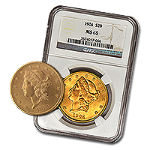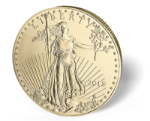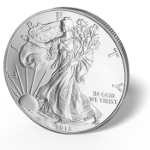All States Sales Tax Information
Before purchasing gold and silver without taxes, it's important to review your local and state regulations. At ITM Trading, we strive to simplify this process for our customers by providing an updated summary of tax laws. We encourage you to utilize this resource to understand your state's tax requirements. Remember, consulting a tax professional and referring to state websites for the latest information is advisable. Online sales tax varies by state. When ordering online and shipping to another state, the destination state's tax regulations apply. At ITM Trading, sales tax is calculated during checkout based on the product's taxability and the recipient's address tax rates. Tax-free purchases of gold and silver are available for customers in Alaska, Delaware, New Hampshire, Montana, and Oregon, where online sales tax is not imposed as of 2020. Below is a list of states that enforce online sales tax and specify which bullion and/or numismatic products are affected by this tax.
Bullion and Collectible State Sales Tax |
If you're interested in understanding how state sales tax could impact your ITM Trading order, simply select the state from the list on the left. Ensure to review the tax rates for the state where your order will be delivered, rather than your residence. Please be aware that while we aren't presently collecting sales tax in all states, this may evolve in the future with the expansion of sales tax laws.
When making purchases through ITM Trading, it's important to note that state sales tax regulations are applicable to orders dispatched within specific states. Within these states, some impose sales tax solely on jewelry or non-precious metal items, while others mandate tax collection irrespective of the items in your order. As each state enforces varying sales tax rates based on the items purchased, ITM Trading recommends utilizing our interactive map prior to your purchase to ascertain the exact charges applicable to your transaction.
Alabama |
Alabama exempts sales and use tax on bullion, including coins, as well as money, gold, silver, and platinum through May 31, 2028. The exemption also applies to a combination of any of these metals. To qualify, the bullion must be refined, contain at least 80% of the precious metal, and have a sales price that fluctuates with the market price of the metal. The exemption does not apply to jewelry or works of art.
Alaska |
Alaska is one of the few US states that does not charge a state sales tax, so precious metal purchases are typically exempt from taxation. This includes bullion and numismatic coins in populated areas like Anchorage, where most of Alaska's precious metal dealers are located. However, cities and boroughs in Alaska may have their own rules and levy local sales taxes. In January 2023, House Bill 3 was introduced to exempt gold and silver coins and bullion from local sales and use taxes.
Arizona |
Arizona does not tax precious metals, including coins, bars, and basic bullion, with sales tax. This is because precious metals are considered monetized bullion, which is defined as any form of precious metal coin, bar, or round that is issued as legal tender or a medium of exchange by a government. However, local authorities may add additional taxes.
Arkansas |
Arkansas does not tax the purchase, sale, or exchange of specie, which includes gold and silver coins, refined gold and silver bullion, and other items valued primarily by their metal content. This includes sales tax, use tax, and capital gains taxes. The law went into effect on August 1, 2023, making gold and silver legal tender in the state.
California |
California sales tax is collected on specific products listed below:
- Non-monetized Bullion.
- Monetized Bullion, Non-monetized gold or silver bullion, or numismatic coins less than $2,000 USD.
- Accessory Items.
- Processed Items.
Colorado |
Colorado does not tax the sale of precious metal bullion or coins that are legal tender in the United States or a foreign country. This exemption applies to state, regional, county, and state-collected local taxes. However, numismatic pieces (collectible coins) that are not considered legal tender may be taxed if their value extends beyond that of their precious metal content. Additionally, jewelry and commemoratives containing precious metals are still subject to sales tax.
- Numismatic coins that are not, and never were, used as currency or mediums of exchange.
- Accessory Items.
- Processed Items.
All other products are exempt from sales tax in Colorado.
Connecticut |
Connecticut does have a sales and use tax, but there are exemptions for certain precious metals transactions.
- All copper, platinum, and palladium products.
- Numismatic coins (collectible coins).
- Gold and silver transactions under $1,000.
- Accessory Items.
- Processed Items.
Even if a purchase is exempt from sales tax, it may be subject to a use tax if it is purchased from an out-of-state retailer for use in Connecticut. It's always best to consult with a tax professional for specific advice on your situation.
Delaware |
Delaware does not have any sales tax, including on precious metals. There is no sales tax on any purchase made within the state, regardless of the type or quantity of goods.
District of Columbia |
The District of Columbia does impose sales taxes on precious metals. There are no specific exemptions for precious metals like gold or silver, so they are subject to the standard sales tax rate of 5.75% in Washington, D.C.
Florida |
Florida does tax precious metals, but there are exemptions based on the type and amount of metal purchased in a single transaction:
- Bullion, non-US coins, or non-US numismatic coins: If the total amount of a single transaction is less than $500.
- Non-US currency.
- Copper.
- Accessory Items.
- Processed Items.
Georgia |
Georgia sales taxes apply to specific products listed below:
- All copper or palladium products.
- Accessory Items.
- Processed Items.
- Certain Currency.
All other products are exempt from sales tax in Georgia.
Hawaii |
Hawaii doesn't have a traditional sales tax, but it does have a General Excise Tax (GET). This tax is generally paid by the seller, but it can be reflected in the prices they charge.
Idaho |
In Idaho, the sale of precious metal bullion and monetized bullion is exempt from sales tax. This includes common precious metals like gold, silver, platinum, rhodium, and chromium, as long as their value is derived from their metal content and not their form. However, there are some exceptions:
- Numismatic Products.
- Accessory Items.
- Processed Items.
All other products are exempt from sales tax in Idaho.
Illinois |
Illinois sales taxes apply to specific products listed below:
- Krugerrands.
- Bullion with purity less than .980.
- Accessory Items.
- Processed Items.
All other products are exempt from sales tax in Illinois.
Indiana |
In Indiana, the tax on precious metals can vary depending on the type of metal and the specific transaction. In Indiana, the sales tax on numismatic (collectible) coins can vary:
- Numismatic coins not in IRAs.
- Foreign Coins.
Note: As a general rule, sales of tangible personal property, including precious metals like gold, silver, platinum, and palladium, are subject to the state 7% sales tax.
Iowa |
Iowa has an exemption from sales and use taxes for sales of coins, currency, or bullion.
- Bullion Products made of Copper.
- Non-legal Tender Coins.
- Accessories.
- Processed Items.
All other products are exempt from sales tax in Iowa.
Kansas |
Kansas sales taxes apply to specific products listed below:
- All copper products.
- All coins that are not made of gold or silver.
- Accessories.
- Processed Items.
All other products are exempt from sales tax in Kansas.
Louisiana |
In Louisiana, most precious metals are exempt from sales tax. This includes gold, silver, platinum, and palladium in various forms like bullion, coins, and bars.
- Non-coin Numismatics.
- Paper Money.
Maine |
Maine has a 5.5% sales tax and there have been legislative efforts to exempt gold and silver bullion and coins from this tax. A bill (LD1051) was passed by the Maine Senate in May 2023 aiming to remove this tax, with an intended effective date of January 1, 2024.
Maryland |
There is no sales tax on precious metal bullion or coins in Maryland, regardless of the purchase price. Prior to this date, purchases over $1,000 were exempt from the state's 6% sales tax.
Massachusetts |
Massachusetts sales taxes apply to specific products listed below:
- Purchases under $1,000.
- Copper Products.
- Platinum Bullion Products.
- Palladium Bullion Products.
- Accessory Items.
- Processed Items.
- South African or Namibian Coins (e.g., Krugerrands).
- Fabricated precious metals for industrial, professional, or artistic use.
All other products are exempt from sales tax in Massachusetts.
Michigan |
There is no sales or use tax on investment coins and bullion in Michigan. This exemption applies to gold, silver, or platinum in bulk state with a purity of not less than 900 parts per 1,000, as well as numismatic or legal tender coins made of gold, silver, platinum, palladium, or other metals, issued by the U.S. or a foreign government with a fair market value exceeding the face value.
Minnesota |
Minnesota has a 6.875% state sales tax, with additional local taxes that can vary. Generally, this sales tax applies to most purchases of precious metals, including bullion, coins, and numismatic items.
However, a recent legislative change expanded the exemption for precious metal bullion. Previously, only bars or rounds with a purity of 99.9% or higher were exempt. Now, the exemption includes a wider range of bullion forms (bars, ingots, commemorative medallions) and metals (gold, silver, platinum, palladium, rhodium, or combinations). The purity requirement has also been removed.
Mississippi |
As of July 1, 2023, Mississippi has enacted a sales tax exemption for the sale of coins, currency, and bullion. This means there is no longer a state sales tax on precious metals in Mississippi.
Missouri |
The state sales tax rate in Missouri is 4.225%. However, cities, counties, and special districts may impose additional local sales taxes, so the combined rate can vary depending on the location. In Missouri, the tax on precious metals depends on the specific type of metal and its purity.
Montana |
There is currently no sales tax on precious metals in Montana. This means you won't pay any sales tax when buying gold, silver, or other precious metals from a dealer within the state.
Nebraska |
In Nebraska, there is no sales tax on currency or bullion, which includes coins and bars made of gold, silver, or other precious metals. This exemption applies to purchases of any quantity. However, there are some exceptions:
- Certain Currency.
- Accessory Items.
- Processed Items.
Nevada |
The tax on precious metals in Nevada is complex and depends on several factors:
Type of Precious Metal:- Bullion.
- Collectible Coins.
- Jewelry and other Processed Items.
County:
- he sales tax rate varies by county, ranging from 6.85% to 8.38%. The state tax is 6.85%, and the rest is the county tax..
New Mexico |
New Mexico doesn't have a sales tax, but it does have a gross receipts tax which is functionally similar. This tax is the responsibility of the seller, not the buyer. However, in practice, this tax is often passed on to the buyer by the seller.
New York |
The tax on precious metals in New York State is a bit complex and depends on several factors:
1. Types of Precious Metal:- Bullion.
- Coins.
- Jewelry and other fabricated items.
2. Transaction Amount:
- Over $5,000: Most bullion transactions over $5,000 are exempt from sales tax.
- Under $5,000: Transactions under $5,000 are subject to sales tax regardless of the type of metal.
ITM has a cap on total sales to New York residents. After the cap is reached sales tax is applicable. Please contact your consultant for additional details.
North Carolina |
In North Carolina, there is no sales tax on investment-grade precious metals such as gold, silver, platinum, and palladium bullion and coins. This exemption was established in July 2017.
North Dakota |
In North Dakota, there is no sales tax on bullion coins or bars with a precious metal purity of 0.999 or more. However, sales tax is applied to the following:
- Precious metals with a purity lower than 0.999.
- Medallions, rounds, or items not classified as legal tender.
- Copper products.
- Accessory Items.
- Processed Items.
Ohio |
As of July 1, 2021, Ohio no longer charges sales tax on gold, silver, platinum, or palladium bullion that meets certain minimum fineness requirements (typically .999 fine or greater). This exemption also applies to coins made of at least 50% precious metal.
Oklahoma |
The tax on precious metals in Oklahoma can vary depending on several factors::
- State Sales Tax.
- Local Sales Tax.
- Capital Gains Tax.
Oregon |
In the state of Oregon, there is no sales tax on the purchase of precious metals like gold, silver, platinum, or palladium.
Rhode Island |
There is no specific sales tax exemption for precious metals in Rhode Island. This means the standard state sales tax of 7% applies to purchases of precious metals like gold, silver, platinum, etc.
South Carolina |
In South Carolina, most purchases of precious metals like gold, silver, platinum, and palladium are exempt from sales tax. This includes bullion, coins, and rounds.
South Dakota |
South Dakota has a multi-layered tax system for precious metals, specifically gold. It includes:
- Severance Tax.
- Sales Tax.
Tennessee |
As of May 27, 2022, Tennessee has removed sales tax on gold, silver, platinum, and palladium bullion and coins. This means there is no sales tax on these precious metals when purchased in Tennessee.
Texas |
In the state of Texas, there is no sales tax on the purchase of most precious metals, including gold, silver, platinum bullion, and numismatic coins.
Utah |
In Utah, sales tax on precious metals depends on the type of metal and its purity.
- Bullion Products made of Copper or Palladium.
- Bullion Products made of gold, silver, or platinum with less than 50% purity.
- Numismatic coins (collector's items) not used as legal tender.
- Accessory items and processed items (like jewelry).
Vermont |
Vermont sales tax applies to all items ITM Trading sells and ships to the state of Vermont. The sales tax rate is calculated upon checkout.
Virginia |
In Virginia, sales of gold, silver, or platinum bullion, or legal tender coins are generally exempt from sales tax.
Washington |
In the state of Washington, there is generally no sales tax on precious metal bullion and monetized bullion (coins used as currency). This exemption applies even if the bullion is sold for more than its face value.
West Virginia |
There is no sales tax on investment metal bullion or investment coins in the state of West Virginia. This exemption went into effect on July 1, 2015.
Wisconsin |
ITM Trading no longer collects sales tax on bullion products in Wisconsin if they consist of at least 35% gold, silver, copper, platinum, or palladium. Taxable Items Include:
- Accessories, such as holders, tubes, coin flips, and similar apparel.
- Processed items, which means products that were processed by third parties and have more value than its original precious metals content (e.g. colorized coins, black ruthenium/gold plated coins, etc.)











